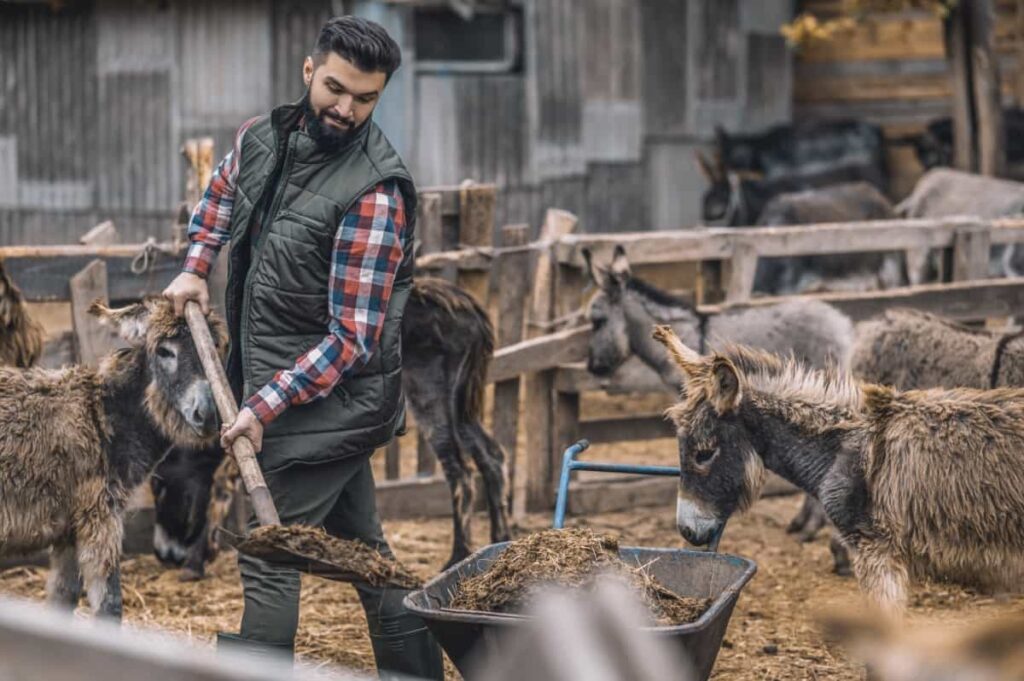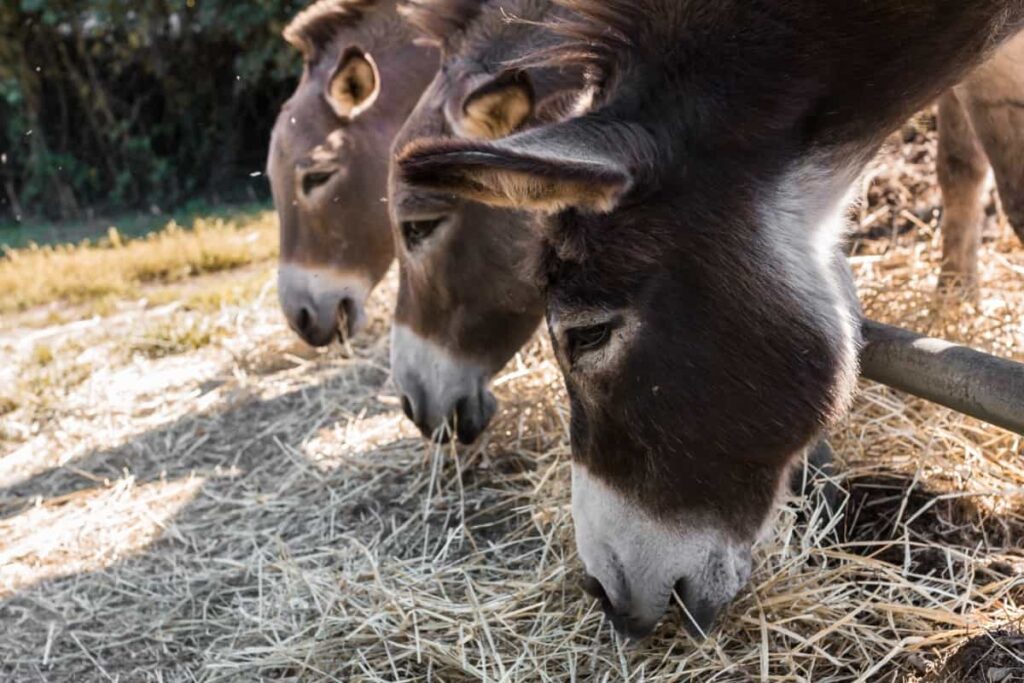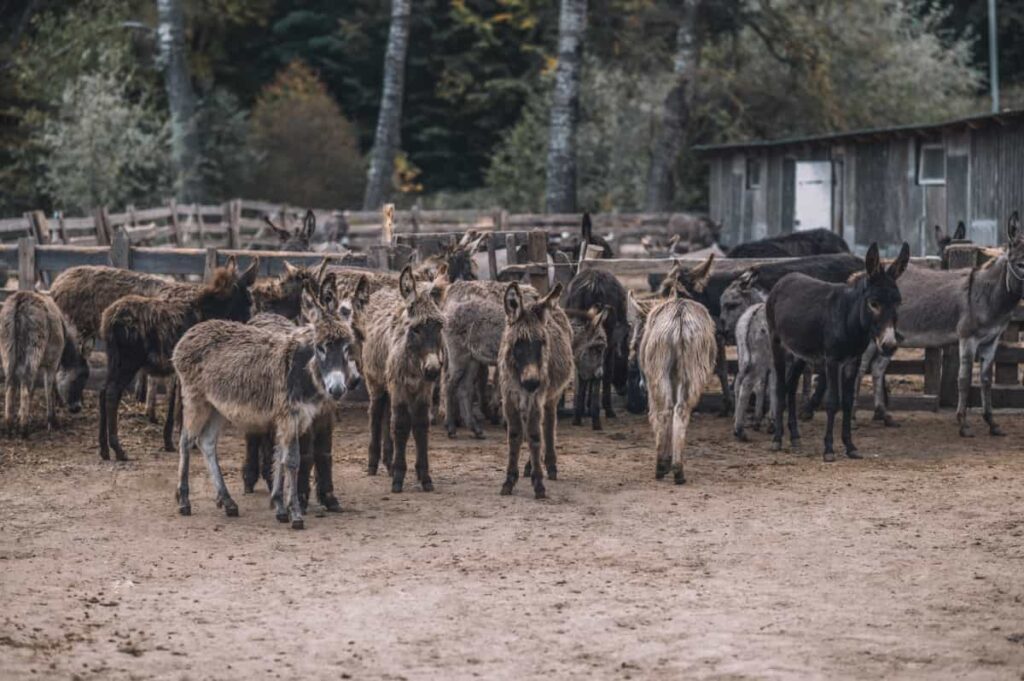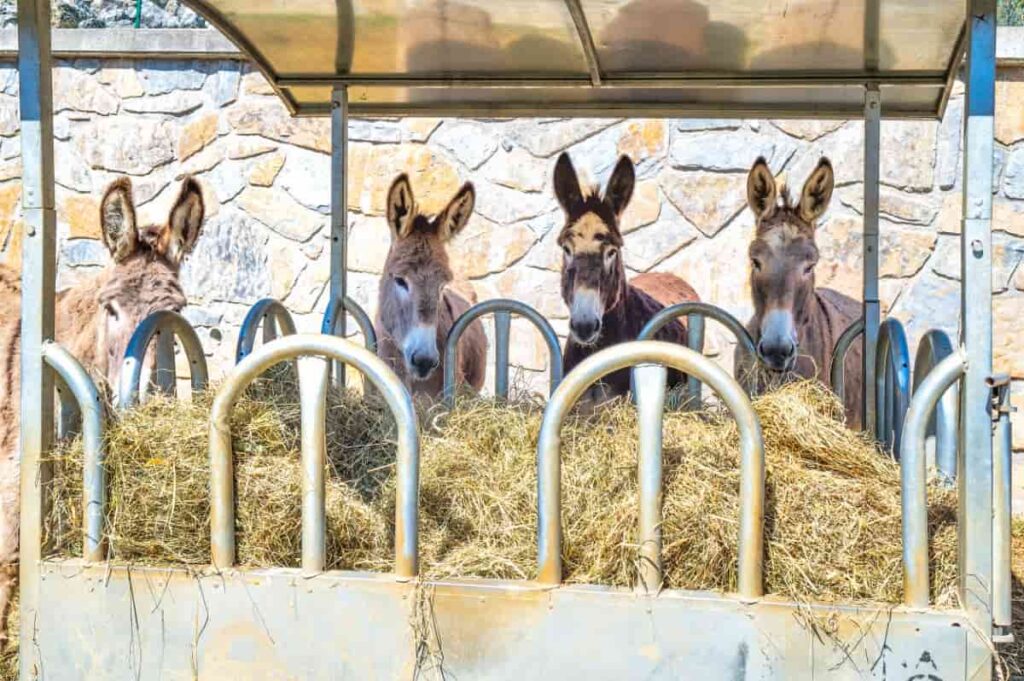Donkey farming has been an integral part of agriculture and transport in India for centuries. While often overlooked, donkeys play a crucial role in various aspects of rural life. This donkey farming business plan guide aims to provide comprehensive insights into establishing and managing a successful donkey farming for beginners, focusing on rearing, raising, and selling milk.
The Role of Donkeys in Agriculture and Transport
Donkeys have been valued for their strength, endurance, and agility, making them indispensable for various agricultural and transportation tasks. In rural India, donkeys are commonly used for plowing fields, transporting goods, and carrying heavy loads over difficult terrains where other vehicles may struggle to navigate. Their ability to work tirelessly in harsh conditions makes them valuable assets for farmers and rural communities.
Benefits of Donkey Farming in India
- Low Initial Investment: Compared to larger livestock such as cows or buffaloes, donkeys require relatively low initial investment and maintenance costs.
- Versatility: Donkeys can adapt to diverse environments and perform various tasks, including agricultural work, transportation, and milk production.
- Sustainable Livelihoods: Donkey farming offers opportunities for rural communities to make income and improve their livelihoods, mainly in areas where agricultural activities are prevalent.
- Eco-Friendly: Donkeys have a lower ecological footprint compared to mechanized vehicles, making them environmentally sustainable alternatives for transportation and agricultural work.

Donkey Farming Business in India
Understanding Donkey Breeds
Popular Donkey Breeds in India
- Indian Wild Ass: As one of the Indian donkey breeds, found primarily in the arid regions of Gujarat, the Indian Wild Ass is known for its endurance and resilience.
- Kutchi: Originating from the Kutch region of Gujarat, the Kutchi donkey is well-adapted to semi-arid environments and is commonly used for agricultural work.
- Sindhi: Indigenous to the Sindh region of Pakistan and parts of western India, Sindhi donkeys are known for their strength and hardiness.
- Marwari: Native to the Marwar region of Rajasthan, Marwari donkeys are prized for their robust build and ability to withstand harsh climates.
Selecting the Right Breed for Your Farm
When starting a donkey farm, choose a donkey breed for your farm by considering factors such as climate suitability, intended use (agricultural work, transportation, or milk production), and availability of veterinary services. Consult with your local experts or agricultural extension officers to get information about the most suitable breed for your specific needs and circumstances.
Setting Up Your Donkey Farm
Choosing a Location
Select a suitable location for the success of your donkey farming venture. Ideally, choose a site with access to ample grazing land, clean water sources, and suitable shelter facilities. Consider factors such as climate, terrain, and proximity to markets or transportation hubs when deciding on the location of your farm.
Infrastructure Requirements: Donkey Farming Equipment
- Fencing: Construct sturdy fencing to enclose grazing areas and protect donkeys from predators or wandering into neighboring properties.
- Shelter: Provide adequate shelter, such as simple sheds or barns, to protect donkeys from extreme weather conditions, including heat, cold, and rain.
- Water Facilities: Install troughs or water tanks to ensure a supply of fresh and clean drinking water for your donkeys.
- Feeding Stations: Set up feeding stations with hay racks or troughs to provide nutritious feed for your donkeys.
Donkey Care and Management
Feeding and Nutrition
Maintaining proper nutrition is essential donkey husbandry practices for the health and productivity of your donkeys. Provide a balanced diet consisting of high-quality forage, such as grass hay or alfalfa, supplemented with grains or commercial donkey feed as needed. Ensure access to clean water at all times, especially during hot weather (like summer) or periods of heavy work.
Donkey Health and Veterinary Care
Regular health checks and preventive care are vital for keeping your donkeys healthy and disease-free. Schedule vaccinations, deworming, and dental exams as recommended by a qualified veterinarian. Monitor your donkeys for signs of illness or injury and seek prompt veterinary attention when necessary.
Shelter and Comfort
Provide comfortable shelter and bedding for your donkeys to rest and seek refuge from adverse weather conditions. Clean and maintain shelter facilities regularly to ensure hygiene and prevent the spread of diseases. Allow ample space for donkeys to move around freely and socialize with each other.
In case you missed it: Common Dairy Cattle Diseases, Symptoms, and Treatment: Check How this Guide Helps Dairy Farmers

Breeding and Reproduction
Understanding Donkey Breeding Practices: Donkey Breeding Techniques
Breeding donkeys requires careful planning and management to ensure healthy offspring and maintain the genetic diversity of the population. Select breeding pairs based on desirable traits like strength, temperament, and conformation. Consider factors like age, health status, and reproductive history when breeding donkeys.
Managing Pregnant Donkeys and Foal Care
Provide proper care and nutrition to pregnant donkeys to support their health and ensure successful foaling. Monitor pregnant donkeys closely for signs of labor and assist with the birthing process if necessary. Provide appropriate care and nutrition to newborn foals, including colostrum intake, vaccinations, and regular veterinary checks.
Training and Behavior
Training Working Donkeys
Training working donkeys requires patience, consistency, and positive reinforcement techniques. Begin training at a young age and gradually introduce them to various tasks such as plowing, hauling, or carrying loads. Use gentle handling methods and reward desired behaviors to encourage learning and cooperation.
Understanding Donkey Behavior and Social Structure
Donkeys are social animals with distinct behavioral patterns and social hierarchies. Understand their natural behavior and communication cues to foster positive interactions and minimize stress. Provide opportunities for socialization and companionship to prevent loneliness and boredom.
Products and By-Products of Donkey Farming
Milk Production and Its Benefits
While donkeys are not traditionally raised for milk production in India, donkey milk is gaining recognition for its nutritional value and health benefits. Donkey milk is rich in vitamins, minerals, and antibodies, making it suitable for consumption by humans, particularly infants, and individuals with allergies or lactose intolerance. Explore the potential for donkey milk production as a niche market opportunity for your farm.
Utilizing Donkey Hides and Other By-Products
In addition to milk, donkey hides, and other by-products can be utilized for various purposes, including leather production, traditional medicine, and cosmetic ingredients. Explore value-added opportunities for processing and marketing donkey by-products to maximize the economic potential of your farm.
In case you missed it: How to Start Sustainable Dairy Farming: Benefits and How to Reduce Your Carbon Footprint With Dairy Cattle

Marketing and Sales
Identifying Market Opportunities
Research market demand and consumer preferences for donkey-related products, including milk, hides, and other by-products. Identify potential buyers, such as local markets, dairy companies, health food stores, and cosmetic manufacturers. Develop marketing strategies to promote your donkey’s products and differentiate them from competitors in the market.
Strategies for Selling Donkey-Related Products
Implement effective sales and distribution channels to reach your target customers and maximize sales opportunities. Consider selling directly to consumers through farm stands, farmers’ markets, or online platforms. Collaborate with local retailers or wholesalers to distribute your products to a wider audience. Offer educational workshops or tastings to raise awareness and generate interest in donkey milk and other farm products.
Donkey Farming Training in India
Donkey farming training in India involves learning about the care, feeding, and management of donkeys for various purposes such as transportation, agriculture, and tourism. Training programs cover topics like donkey behavior, health care, grooming, and harnessing techniques. These programs for donkey farming in India may be offered by agricultural extension services, vocational training institutes, or animal husbandry departments, providing practical skills and knowledge to farmers and enthusiasts interested in donkey husbandry.
In case you missed it: Freeze-proof Cattle Waterers: Installation, Features, Benefits, and 15 Best Cattle Waterers for Cold Weather

Conclusion
Careful planning and executing each step of your donkey farming business and obeying donkey farming regulations in India, you can establish a successful venture that provides a valuable product to consumers while also contributing to the development of rural communities in India.
- Aquaponic Farming at Home: A Step-By-Step Guide
- Profitable Village Farming Business Ideas in 2024
- High-Yield Aquaculture: Fast-Growing Fish for Farming
- Effective Fish Pond Construction Techniques for Beginners
- Irrigation and Water Management in Pineapple Farming
- Blossom to Harvest: Mastering Flowering and Pollination in Papaya Farming
- Pig Fattening Essentials: From Selection to Sale for Beginners
- Raising Wagyu Cattle: A Complete Guide for Premium Beef Production
- Soil Types and Their Water Holding Capacity
